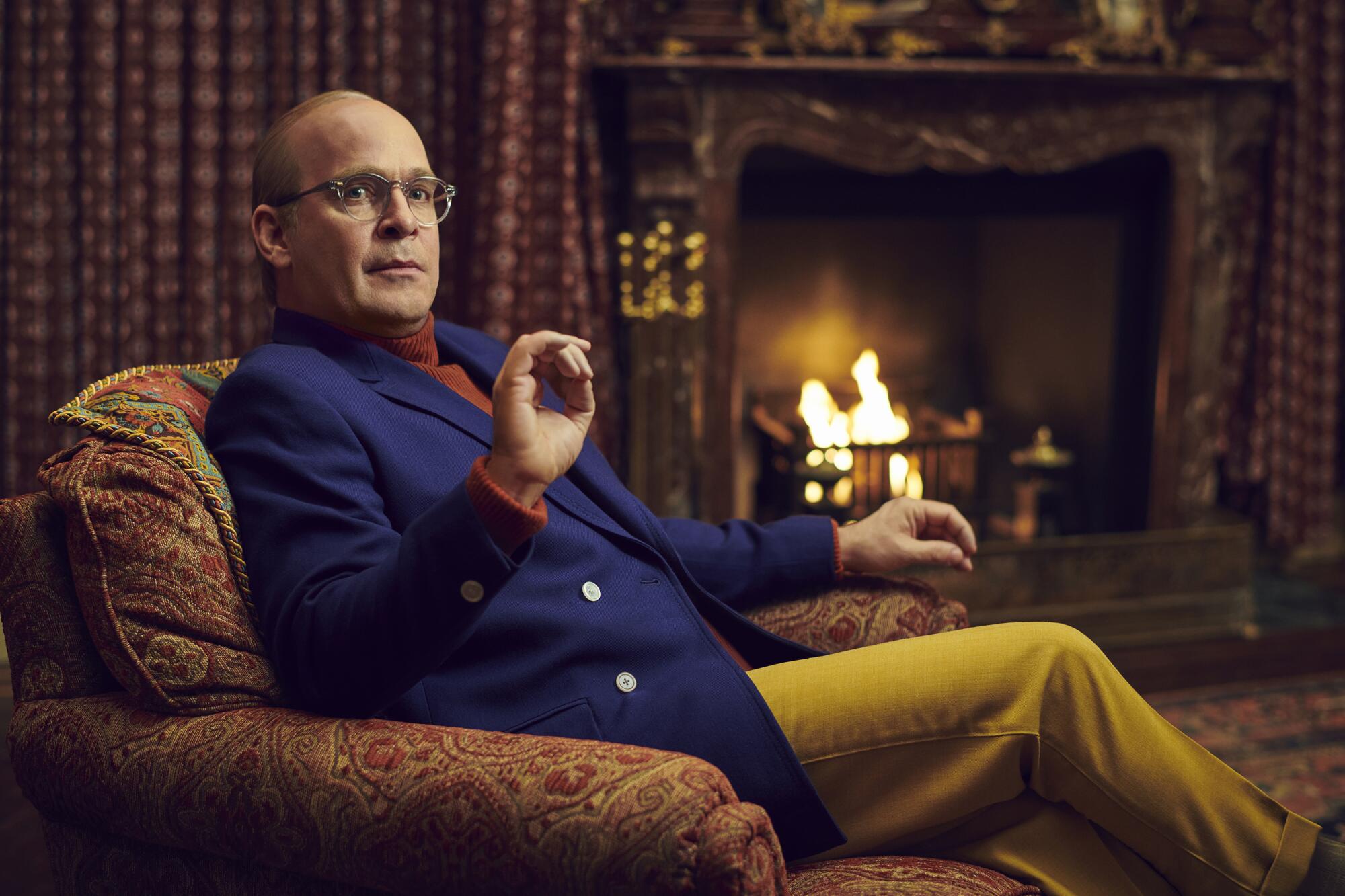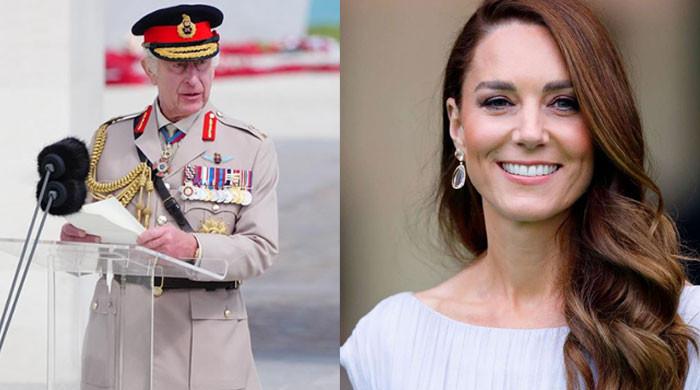Truman Capote was an immensely public figure, even, perhaps especially, when he was self-immolating. Film and television have offered a front-row seat to his lacerating wit and his downward spiral. Both are showcased in the FX limited series “Feud: Capote vs. the Swans,” courtesy of star Tom Hollander.
Capote's story is well-trodden ground. “Capote” (2005), for which Philip Seymour Hoffman won an Oscar as the writer, and “Infamous” (2006), starring Toby Jones, tell the story of how Capote, at the peak of his talent, essentially sold his soul. to write his best-selling “nonfiction novel” of 1966, “In Cold Blood.” Falling in love with one of his subjects, the murderer Perry Smith, played by Clifton Collins Jr. in “Capote” and Daniel Craig in “Infamous,” and then wishing for Smith's death so he can finish the book, Capote enters a state of moral torment. and, as the movies suggest, the post-“Blood” creative paralysis.
“Feud: Capote vs. the Swans” picks up the story a few years later. Capote is now a heavy alcoholic and pill popper, working on a book, “Answered Prayers,” which he will never finish. He spends much of his time sipping cocktails and gossiping with his “swans,” a variety of socialites including Babe Paley (Naomi Watts), Slim Keith (Diane Lane), CZ Guest (Chloë Sevigny), and Lee Radziwill ( Calista Flockhart). He acts as a narrator on talk shows and tells more stories than he writes.
Then he self-sabotages, writing a thinly disguised story for Esquire magazine that spills the tea on his swans, particularly Paley, his favorite of the bunch. He is quickly exiled from the kingdom, a social outcast abandoned to his most self-destructive impulses. Suffering from liver disease and excessive drug use, he died in 1984, aged 59. (An improvised version of “Answered Prayers” was published posthumously in England in 1986 and in the United States in 1987, to mixed reactions.)
This is the Capote Hollander addresses in “Feud,” a prematurely exalted writer who drowns his gifts in alcohol and is ostracized by the very people he put on a pedestal. He is a Capote who, at this point, was playing a caricature of himself for public consumption. Hollander, most recently seen in the second season of “The White Lotus,” knew he had to move beyond Capote's big-screen portrayals and the easily ridiculed spectacle the man himself became.
“The danger is that you become a kind of grotesque,” Hollander said in a recent video interview from Reading train station, outside London. He carries a geranium that he will soon give as a housewarming gift to a friend in Dent's town. “You have to look at the real person and then you have to rise to the occasion. “You have to find moments of stillness so the audience has a chance to look you in the eye.”

The real-life Truman Capote greeting guests at his Black and White Ball at the Plaza Hotel in New York City in 1966, from the documentary “The Capote Tapes.”
(Elliott Erwitt / Magnum Photos)
What they see is rarely pretty. Fueled by a bruised ego and gallons of vodka, the Capote of “Feud” is a far cry from the blinding literary talent who wrote “Breakfast at Tiffany’s” and “In Cold Blood.” He has ingratiated himself with the swans, all obscenely rich, most married to powerful men (Paley was the wife of CBS boss and prolific womanizer William S. Paley, played here by Treat Williams). They accept Capote as a source of gossip and entertainment, a kind of court jester to trot out at dinner parties. Capote takes advantage of them, until, in an act of resentment, he sets them on fire with his printed handwriting.
“I think a part of him was angry about his position in that society,” Hollander said. “He would deny it fervently and repeatedly, but he was Truman Capote. He was the best writer of his generation, or one of them. And they treated him like one of the staff. He was a gay man who was stuck at the other end of the table and very welcome as long as he told funny stories and shocked everyone. He had to sing for dinner. They didn't have to sing during dinner. They just had to stand there looking good.”
Capote completists looking for depictions of the author might go back to the 1962 film adaptation of “To Kill a Mockingbird,” with John Megna playing Dill, a character based on the writer, a childhood friend of the “Mockingbird” author. Harper Lee. Capote played himself in “Murder by Death” (1976), the filming of which is briefly recreated in “Feud” (it appears that Capote, in a drunken daze, had trouble remembering his lines).

Fueled by a bruised ego and gallons of vodka, the Truman Capote of “Feud” is a far cry from the blinding literary talent who wrote “Breakfast at Tiffany’s” and “In Cold Blood.”
(Pari Dukovic/FX)
But “Capote,” “Infamous,” and “Feud” form a kind of informal trilogy of ruin. “Capote” is pure tragedy. “Infamous,” which covers the same material, brings comedic undertones into the mix. And “Feud,” like much else under the Ryan Murphy production umbrella, is a glorious melodrama, with room for a wide emotional range (anger, defiance, despair) on Hollander’s part.
“Swans” creator Jon Robin Baitz found his star to be the perfect Capote.
“Tom brings a tremendous freedom of improvisation, which comes from instinct and intelligence: a very sharp balance between emotional and investigative curiosity,” Baitz said in an email. “He's also polite, kind and funny, and the swans swooned over him.”
As Hollander sees it, Capote attacked his social life for work that didn't even come close to his own standards. The story that caused the swans to scatter, “La Côte Basque” (named for the elegant New York restaurant where the author met the swans), is nonsense compared to Capote's best writing. “He thought he was doing something better than what he was doing,” Hollander said. “He thought he was writing an amazing piece of social satire and, to some extent, celebrating this world. But in reality, he was just writing a little scandal sheet. I don't think he was as good as he used to be because he drank a lot. He was no longer as smart as he used to be because he had lost too many brain cells.”
And yet Capote continues to draw us into another salacious story and another dramatic performance. Forty years after his death, he still holds a place at court.











